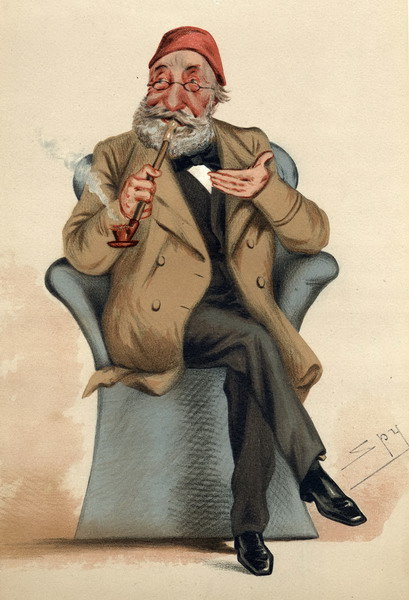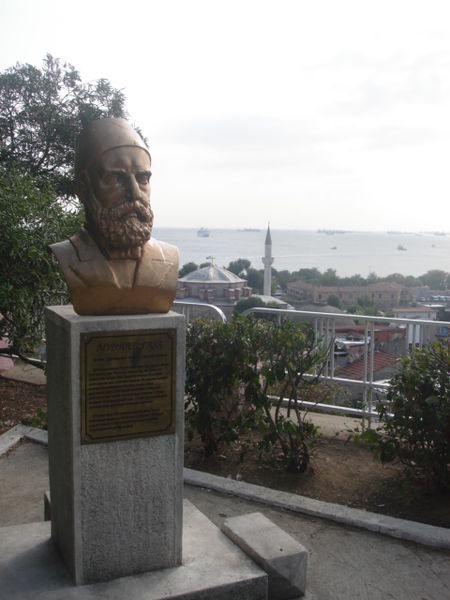<Back to Index>
- Grand Vizier of the Ottoman Empire Midhat Pasha, 1822
PAGE SPONSOR
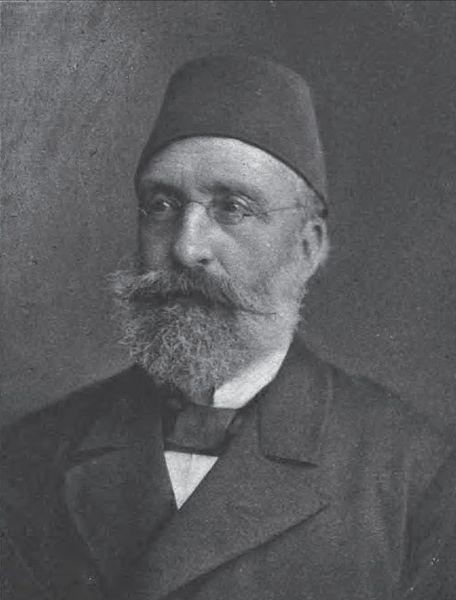
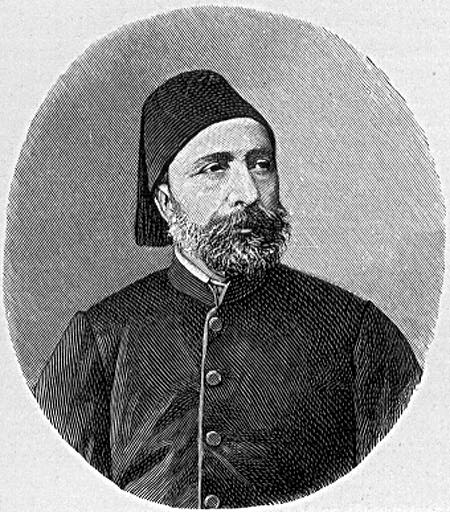
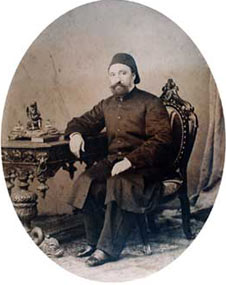
Midhat Pasha (October 1822, Istanbul, Ottoman Empire - 26 April 1883, At-Ta'if, Ottoman Empire) (Turkish: Ahmet Şefik Mithat Paşa, Ottoman Turkish: احمد شفیق مدحت پاشا) was a dynamic, pro-Western, reformer and statesman.
The son of a civil judge, he was born in Istanbul (Constantinople) in 1822. His father, a declared partisan of reform, trained him for an administrative career, and at the age of twenty - two he was attached as secretary to Faik Effendi, whom he accompanied in Syria for three years.
On his return to Constantinople, Midhat was appointed chief director of confidential reports, and after a new financial mission in Syria was made second secretary of the grand council. His enemies, however, succeeded in ousting him from this post, and caused him to be entrusted with the apparently impossible task of settling the revolt and brigandage rampant in Rumelia.
His measures were drastic and their success startling, so the government made him an official of the first rank and restored him to his place in the grand council. In similar vigorous fashion he restored order in Bulgaria in 1857. In 1860 he was made vizier and pasha, and entrusted with the government of Nis, where his reforms were so beneficial that the sultan charged him, in conjunction with Fuad Pasha and Ali Pasha, with preparing the scheme for adapting them to the empire which was afterwards known as the law of the vilayets.
After further administrative work in his province, he was ordered to organize the council of state in 1866, and was then made governor of Baghdad, where his success was as decisive as at Nis, but attended with much greater difficulties. In 1871, the anti - reform influence of the grand vizier, Mahmud Nedim Pasha, seemed to Midhat a danger to the country, and in a personal interview he boldly stated his views to the sultan, who was so struck with their force and complete disinterestedness that he appointed Midhat grand vizier in place of Mahmoud. However, proving himself too independent for the court, Midhat remained in power for only three months, and after a short governorship of Salonica he lived apart from affairs at Constantinople until 1875.
From this time forward, however, Midhat Pasha's career resolved itself into a series of strange and almost romantic adventures. While sympathizing with the ideas and aims of the Young Ottomans, he was anxious to restrain their impatience, but the sultan's obduracy led to a coalition between the grand vizier, the war minister and Midhat Pasha, which deposed him in May 1876. The sultan was murdered in the following month.
His nephew Murad V was in turn deposed in the following August and replaced by his brother, Abdul Hamid II. Midhat Pasha now became grand vizier, reforms were freely promised, and the Ottoman parliament was inaugurated with a great flourish. In the following February, however, Midhat was dismissed and banished for supposed complicity in the murder of Abdülaziz. He then visited various European capitals, and remained for some time in London, where he carefully studied the procedure in the House of Commons.
Again recalled in 1878, he was appointed governor of Syria, and in August exchanged offices with the governor of Smyrna. He served briefly in İzmir as governor of the vilayet of Aydin, but on 17 May 1881, after only a few months on that post, he was arrested. Ahmed Cevdet Pasha, the justice minister, brought him to Istanbul, where he was charged with the murder of Sultan Abdülaziz. The interrogation and court proceedings took place at Yildiz. In conclusion, he was convicted and charged with the murder, and was sentenced to death. However the execution was commuted to life imprisonment in Taif in Hejaz.
Some historians claim that these to be trumped-up accusations as they believe that confessions were extracted from some suspects through the use of torture, and the use of forged evidence and paid witnesses led to his conviction. However, they claim that the British pressure impeded his execution, so he was imprisoned in the fortress of Taif, in Hejaz. It was reported that, soon after his arrival, the Emir of Mecca received a message from Istanbul demanding the death of Midhat from "an accident". The incumbent Emir Abdul Muttalib was a close friend of Midhat however, and no action was taken by him. As a result, Osman Pasha, governor of Hejaz, surrounded the Emir's summer residence in Taif and imprisoned him. After that, Midhat Pasha's fate was sealed. He was assassinated in his cell on 26 April 1883.